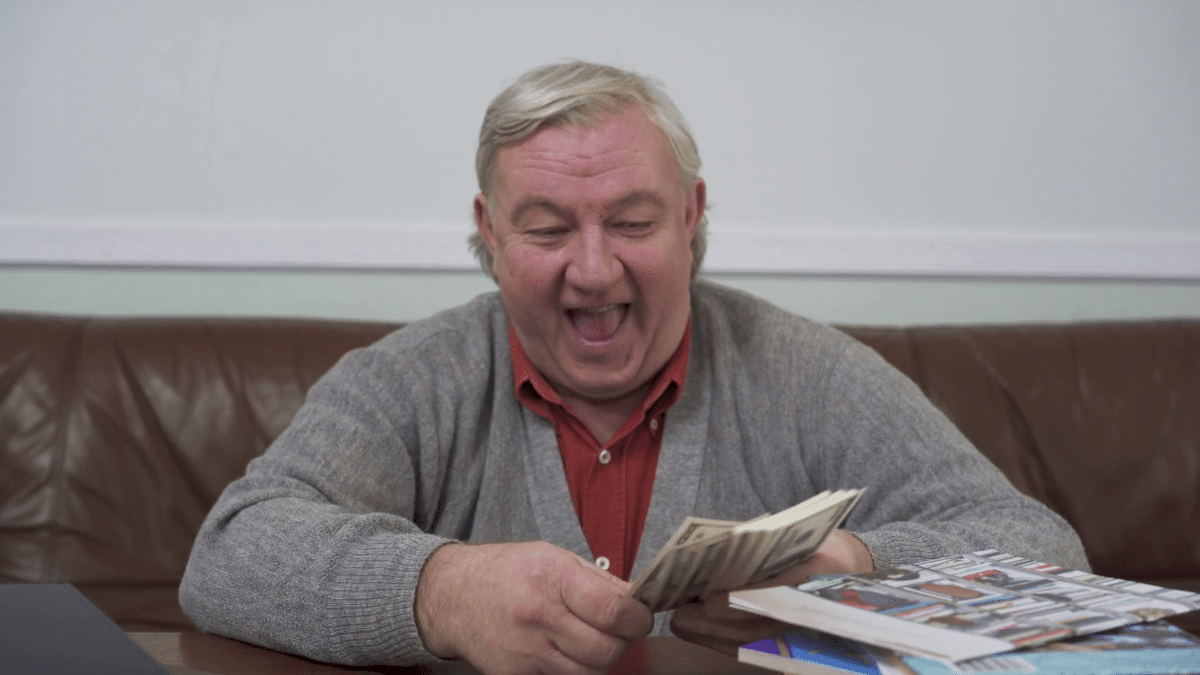Sometimes Stocks Aren’t Enough

Family Update
My good high school buddy came down for the weekend. I haven’t seen him in fifteen years or so. He looks the same except for some gray hairs.
It was great to bond and show him around town. It is incredible how a friendship can continue as if no time has passed.
The whole family went to Mote Marine together. The kids insisted that we get souvenirs. Ro got a small stuffed manatee. We named him Manny the Manatee.
The kids really miss him. They got attached to him so fast. We sure hope he comes back down again.
Mary was a smart cookie. At a young age, she promised herself to start saving as much money as possible. In addition to contributing the maximum to her 401k, she made an effort to fill up her bank account.
At age 60 she had, not including her retirement accounts, nearly $700,000 in the bank.
One day, she got a call from her nephew. “Hi Aunt Mary. I have great news! I am starting a new landscaping business,” he said. “There is something I need to ask of you. I was hoping to borrow $100,000 for a bunch of equipment. I don’t even need the money for all that long. I will be able to pay you back in three years. The profits will pay off the equipment in three years or less. I also want to pay 5% interest on that loan. I think that is fair.”
Mary thought to herself, He has always been such a savvy businessman. Not to mention it would be great to make 5% on the money, instead of the 0.1% they are giving me at the bank.
So they drew up some legal documents and Mary gave her nephew money. Over the next three years, he faithfully paid her $5,000 a year in interest. At the end of three years, he made good on his promise and returned the original money back to Mary.
What you just read was a rudimentary example of a bond.
I’ve often found that people like you are obsessed with the stock market and pay very little attention to bonds. Nearly all of you, in addition to stocks, have money in bonds inside your portfolio.
Bonds are simple. They are a loan you give to a borrower, usually a government or large company.
Let’s say Coca-Cola needs money for a new bottling factor. They would issue bonds (loans) to the public. In this example, Coca-Cola is willing to pay 3% interest on the bond (loan) over five years, at which point they return the money. When a bond reaches the end of its term, it has “matured.”
Bonds are fantastic instruments to hold inside a portfolio. They are far less volatile and can smooth out the ups and downs of the markets.
Examples:
In 2020, bonds returned 7.51% and stocks returned 18%. In 2010, bonds returned 6.54% and stocks returned 6.45%. In 2000, bonds returned 11.63% and stocks lost -11.98% In 1990, bonds returned 8.96% and stocks lost -9.1%. In 1980 bonds returned 1.93% and stocks lost -4.92%.
I’m trying to show you some years where the stock market is down, so you can see the balancing power of bonds in your portfolio.
Let’s look at the year 2000. Let’s say you invested $100,000 into a 50/50 mix of stocks and bonds. The ending balance? $99,820. Even though the stock market lost 12% you came out equal. Not so bad is it?
Here’s an example where you can really see bonds can be a “shock absorber.” At the peak of the pandemic, stocks were down 34% but bonds increased by 8%. Often when stocks go down, bonds go up.
This is why you invest in a balanced and diversified portfolio of stocks and bonds.
Now let’s go back to the Mary example.
Now that Mary’s family realized that she had deep pockets, Uncle Bozo approached her about an opportunity. A condo project in Puerto Rico was looking for investors. Uncle Bozo told Mary, “I only need the money for one year. I’ll give you 10% interest for this short-term loan (bond).”
So Mary loaned Uncle Bozo $100,000.
Shortly after he gave the developers the money, a massive hurricane wiped out the half-built condos. Uncle Bozo was left with nothing.
Poor Mary. She’s out $100,000. And future family picnics are going to be awkward.
In other words, he had to default on the loan. Bonds work the same way. Let’s say you had purchased a bond from Blockbuster Video for expansion plans. They would have defaulted on the debt and you’d be left with nothing.
This comes back to why diversification is so important. Placing all your money in an individual bond is asking for trouble. In these examples, I am using the bond index which includes over 10,000 individual bonds.
There are different kinds of bonds:
U.S. Government Bonds (You are loaning money to the U.S. federal government)
Municipal Bonds (Loans to municipalities)
Corporate Bonds (Loans to companies)
International Bonds (Loans to companies and governments overseas)
In addition to the different kinds of bonds, bonds receive certain ratings.
The safer the bond the better the rating. When I say “safe,” it represents the chance of default.
So a AAA bond is practically guaranteed not to default. You get a lower interest on high-rated bonds because you are not taking on much risk.
A BBB bond indicates a very low probability of default. But since the default risk is higher than AAA-rated bonds, you will receive a higher interest rate.
A CCC-rated bond is a bond where there is a high possibility of default. These are also referred to as “high yield bonds” or “junk bonds.” You get a much higher interest rate on this kind of bond since you are taking on so much risk.
Bond yields are tied to interest rates. Right now, bonds do not pay much interest, historically speaking. But it is reasonable to say that, in the long run, a bond portfolio will return an average of 2-4% between now and the end of your life.
I’m going to close today’s newsletter with a joke.
What is the difference between a teenage guitar player and government bonds?
Government bonds mature over time and earn money.
Be Blessed,
Dave
P.S. Are there any topics you would like covered in future articles? Reply to this email with your answers. |



